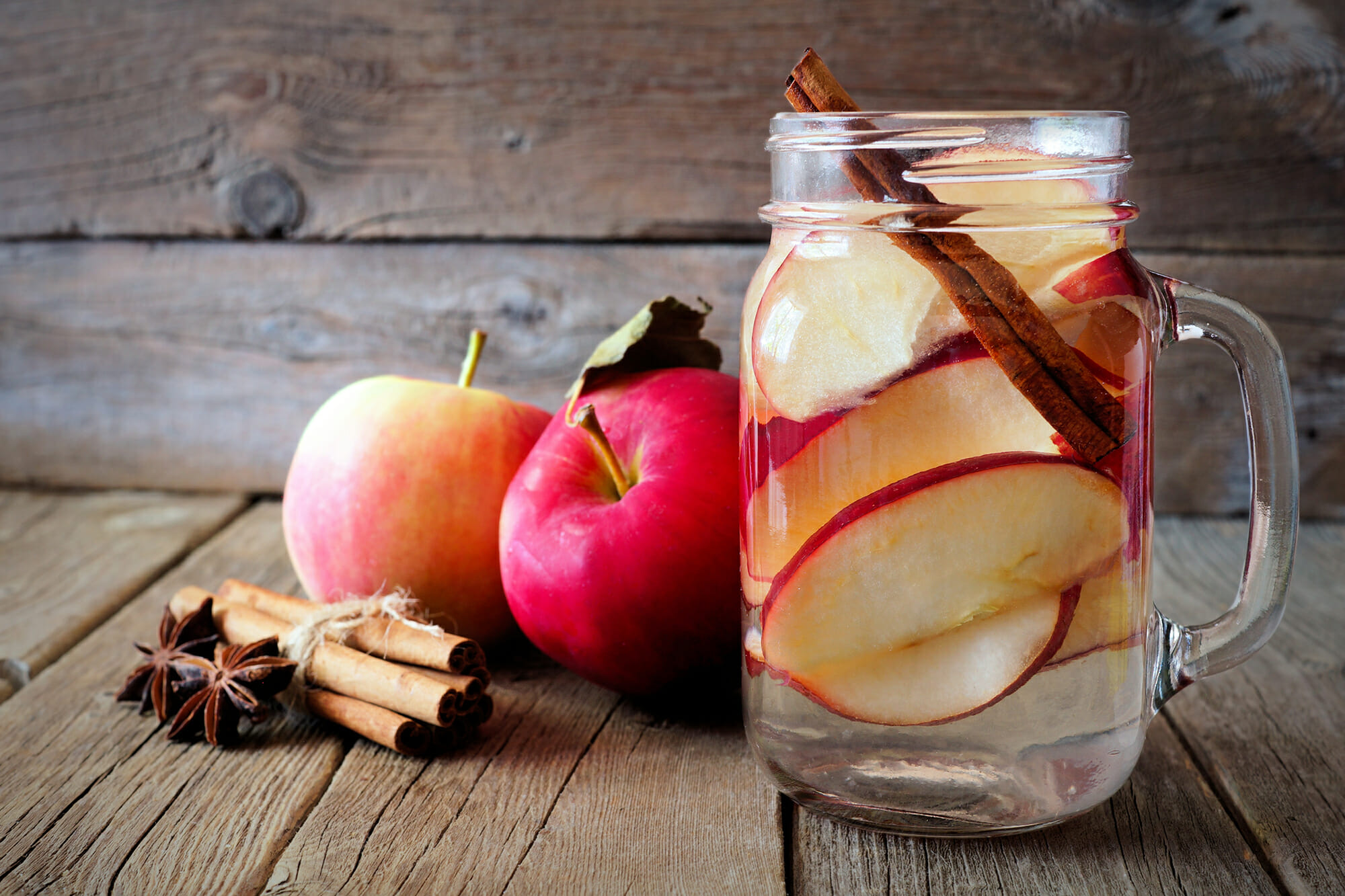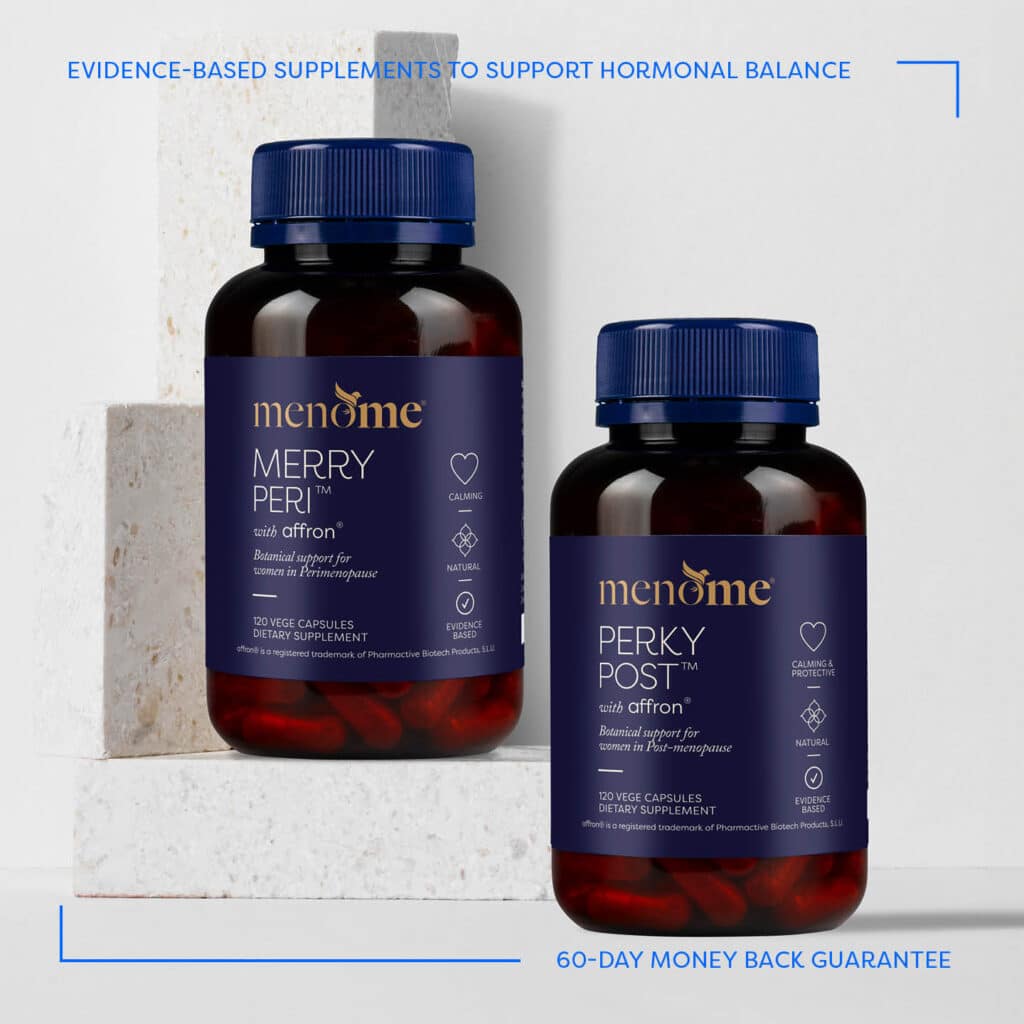These 3 infused water recipes not only keep you hydrated but also support your hormones, gut health, and weight management during midlife and beyond.
Infused water? Really?
Absolutely! Hydration is key to happy, healthy hormones, gut function and weight management – especially during menopause.
As we age, our natural water volume declines, making it even more important to up your intake. Water supports nearly every bodily process and can ease menopause symptoms like bloating, headaches, and brain fog. Oh, and poop issues like constipation.
Let’s dive into why drinking enough H20 matters during menopause and beyond – and how these 3 infused water recipes can keep you refreshed all year round.
Water Facts to Keep You Sparkling
- The human body is roughly 2/3 water.
- The brain is about ¾ water.
- Blood contains approximately 85% water.
- We lose 2.5 to 3 litres of water daily through sweating (“Hey, we don’t sweat we sparkle!”), breathing and trips to the loo.
Menopause Hydration Tips
1. Aim for 1-2 litres of water a day or more if you’re active or it’s warm.*
* amounts vary according to your level of activity and the heat of the day; more sweat more water.
2. Sip, don’t gulp. Sipping allows your body to assimilate fluids better. Gulping might mean more loo visits – awkward!
3. Avoiding drinking large amounts of water with meals. It can dilute your stomach acid, which often underperforms in midlife because we have less of it.
4. A word about sparkling water. Though better than sugar-laden sparkling drinks, experts say it’s slightly acidic (pH 5-6), so monitor digestive issues. Plain still water (pH 7-7.5) is your best bet.
Lemon Water – A Midlife Classic
Lemon water is loved for its alkalising effects and electrolytes that enhance hydration. Squeeze half a lemon into warm water to start your day brilliantly. For extra zing, add cinnamon and ginger – both helpful for blood sugar regulation during menopause.
Water & Weight Loss in Menopause
Drinking water can support your weight loss journey by:
- Reducing appetite.
- Increasing energy expenditure (more kgs/cals burned).
- Helping you consume fewer calories.
So that was the good news and the bad news.
But there’s more good news. The following delicious infused water recipes will help you change up your plain water when you want some extra oomph. Filtered water is best but if you don’t have it go with what you’ve got. Keep it simple.
3 Infused Water Recipes To Love (& Sip All Year)
What is infused water?
Water infused with fruits, vegetables, and herbs for flavour and a dash of nutrients – super easy, delicious, and a refreshing way to stay hydrated.
1. Apple and Cinnamon

Pop sliced apples (no seeds) and a cinnamon stick into a jug or carafe. Let it infuse overnight in the fridge. Cinnamon helps lower blood sugar and improve insulin sensitivity – a win for women facing menopause-related weight gain.
Study: Cinnamon’s effect on insulin
2. Berry and Lemon
 Use whatever berries you love – blueberries, strawberries, raspberries, blackberries – packed with antioxidants that support heart health, brain function, skin, and oxidative stress reduction. Add some lemon slices and leave overnight in the fridge. Tip: Add ice before drinking to release flavour.
Use whatever berries you love – blueberries, strawberries, raspberries, blackberries – packed with antioxidants that support heart health, brain function, skin, and oxidative stress reduction. Add some lemon slices and leave overnight in the fridge. Tip: Add ice before drinking to release flavour.
Studies: Antioxidants and health, Berry benefits
Watermelon and Mint

Slice seedless watermelon and muddle fresh mint leaves; add ice and fill with water. Watermelon refreshes and delivers vitamins A, C, B complex, plus lycopene – a powerful antioxidant especially helpful for midlife health. Mint adds vitamin A and antioxidants, packing a flavour and health punch.
Studies: Watermelon nutrients, Mint benefits
Bonus Tips:
- Experiment! Try cucumber and mint or pineapple and basil for exciting combos.
- Freeze infused water and blitz for a refreshing granita – perfect as a summer mocktail.






 Body-smart support for your stage of life
Body-smart support for your stage of life